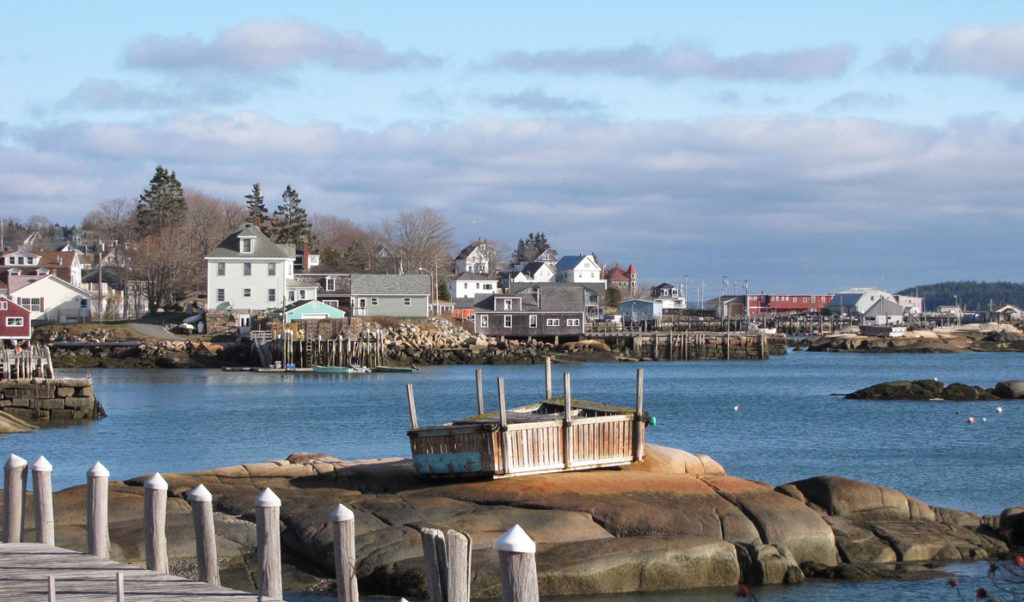Reflections is a monthly column written by Island Fellows, recent college grads who do community service work on Maine islands and in remote coastal communities through the Island Institute, publisher of The Working Waterfront.
The snow is piling up outside, a fire is crackling the fireplace, a cup of tea is steaming on the table, and two hands are busy knitting wool into… well, something. In the background, there are voices echoing out of speakers filling the house with captivating stories and vivid imagery.
Winter on an island can be sleepy sometimes, so I started listening to podcasts to entertain myself through the cold, dark evenings, usually as I was relaxing or cooking.
One of my favorites has always been Moth Radio, where real people take to the mic to share true personal stories centered around a particular theme. The power of these stories does not dissipate in the transition from real life to podcast, and in most cases, there is a special kind of intimacy, like a one-on-one, piped-directly-to-your-brain feeling. It’s like the storytellers dropped by to have a cup of coffee and are sitting in the chair next to you. It’s addicting.
Anthropologists say that storytelling is a common thread in every known culture, because it was used to keep us alive. If someone told you not to eat a certain berry because it was poisonous, you might take some notice, but if you were told a detailed account of someone who’d eaten the berry and become violently ill, you would be 22 times more likely to remember what the berry looks like.
Stories are more memorable than facts because they engage both data and our emotions. We tell stories to our friends, family, and coworkers all the time. We use them to make sense of our world and to share that understanding with others.
If there is one thing I know after living for almost a year and a half in Deer Isle-Stonington, it is this—there is no shortage of people here who know how to tell a good story.
One of my fellowship projects has been helping the historical society with the technology aspects of its ongoing oral history project. Mostly I run the recording equipment and play with the computer, but I also get to listen to the fascinating descriptions of what island life was like through the recollections of the locals. We are collecting these audio conversations in our archives so that family members, students, and researchers can listen to good quality, first-hand narratives when they visit the historical society.
When we begin a conversation with those who bravely agree to be interviewed, they are always modest, and claim they don’t know anything important. This is always untrue. Once we get settled in, the memories tumble out and build on each other until we have usually talked for more than an hour.
We record all sorts of topics such as, mental maps of houses and businesses, explanations of how things were made the old-fashioned way, descriptions of the land and sea, the good times, the hard times, and what we all want to know—what happened at those dances.
It got me thinking about what makes an interview go well, and I’ve concluded that it has nothing to do with the interviewer or the questions; it is about the storyteller. All the community members we interviewed had three things in common: they spoke from the heart, they were authentic, and had undeniable charm. The personal stories that peppered their descriptions carry emotional weight and make it feel less like a formal interview, but a very real conversation.
Being a part of the historical society’s project has been a wonderful way for me to meet interesting people, get to know my new home, and feel included in the different circles on the island. Each time I listen to a story told aloud, and feel that direct connection with the teller, I am reminded of what a story, well told, can do.
Dana Marks works with the Deer Isle-Stonington schools to bring aquaculture education and mentoring opportunities to students, and with the historical society training volunteers to catalogue its collection of oral histories.





